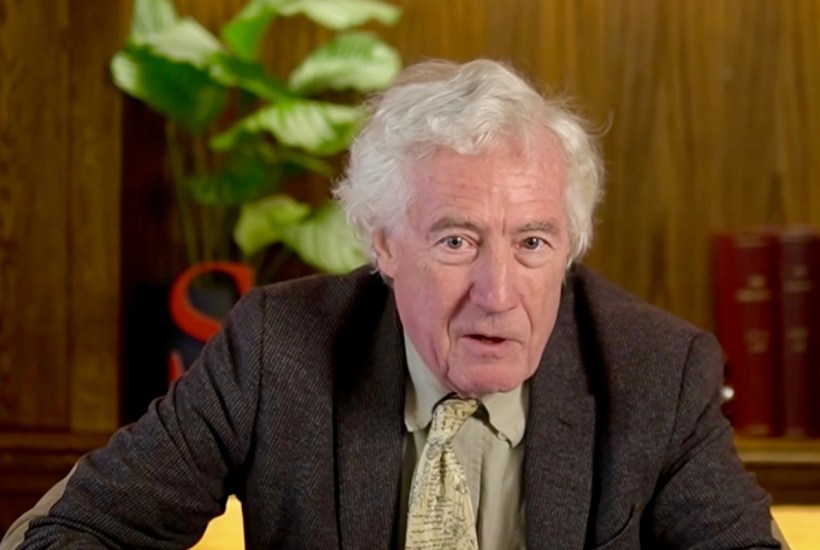There used to be a saying: ‘never discuss religion or politics’. That was just a societal rule, a prudent tip for an enjoyable evening. But that principle is also in our constitution. This is a fact recognised by the Supreme Court — and particularly by Lord Sumption — earlier this year. Sharing your political opinions is, for some people, a breach of constitutional obligations.
The UK is odd, some think, in having the constitution that we do. Far younger states with bright and shiny constitutions, written in single documents, seem to look down on our frumpy older version. But if we are playing constitutional top trumps, the UK scores near the top — longevity, democracy, universality, rule of law and (perhaps most crucially) fewest own citizens murdered by the state.
Some critics of our constitution say it’s unwritten. This is just wrong. It is mostly written but it is not written in one place. Our constitution uses the same principle of defence as the internet. The internet was, in part, a response to the threat of nuclear war: if all your communications are in one place and your enemy nukes it, you have an issue. So you must spread the net so wide that no one can shut it down.
Our constitution has evolved in a very similar way. Ideas and rules of the constitution are not in one document or one place for good reason. This fractured constitution, with a bit of it here, a bit there and a good slice left up the second chimney in Westminster Hall, has protected it and us all from any nuclear strike. And we lawyers have been left free to focus on stuff that helps the economy, generates jobs and pays taxes (my kind of law).
It does though make our constitution a bit slower than almost any other. And a constitutional wrong has, as a result, been allowed to grow and fester.
It is a constitutional truth that certain jobs, tasks, roles and institutions must remain politically neutral. Breaking that rule is a serious wrong.
Like internet servers scattered across a country, so too our constitution placed this rule in lots of different places. The obvious place is the employment contracts of certain jobs. But the constitution is not employment or contract law. It’s just resting there, in a paragraph those types of busy lawyers no doubt skip past.
The rule is there too in the regulations that govern the BBC — which is arguably why it is such an important and valued institution. The Master of Selwyn College Cambridge wrote to the Times, making an entirely different point, but he, no doubt accidentally, implied all broadcasters are held to the same standard — they aren’t. If Ofcom believe they are, Ofcom is wrong. His point is unharmed by my noticing that, but the BBC is part of our constitution — the charter is a constitutional document. And just like putting a server in a remote location, we put one of our core constitutional principles in it.
It is not just the BBC — many of us are held to different standards depending on our obligations. Some of us cannot talk on politics in public by law. Because the constitution is how it is, we may need to re-discover the complete list of people whose job involves being politically silent. If the country and the constitution are to heal then we all need to root around down the backs of our sofas and check whether the constitutional rule — that you may not speak publicly on politics — applies to you.
I discovered this week that the Supreme Court did just this task in January. The disclosed e-mails are here. They are to its credit and the Supreme Court is leading the nation in repairing the constitution.
Lord Sumption wished to speak on politics. Lord Sumption noticed that he could not do that and remain even a reserve judge. Lords Reed and Hodge also noticed. Sumption resigned. Rightly. Those three Lords mark the start of a restoration of our constitutional principle that certain people cannot discuss politics in public.
We know now with greater certainty that that rule applies to sitting or reserve Supreme Court judges. We might expect it to apply to lower judges and other institutions — and quite a few more. We’ve lived through an attack on the constitution. As we dust off from that and systems whizz back into life, we are going to need more people to follow the excellent example of the court.
Got something to add? Join the discussion and comment below.
Get 10 issues for just $10
Subscribe to The Spectator Australia today for the next 10 magazine issues, plus full online access, for just $10.




















Comments
Don't miss out
Join the conversation with other Spectator Australia readers. Subscribe to leave a comment.
SUBSCRIBEAlready a subscriber? Log in